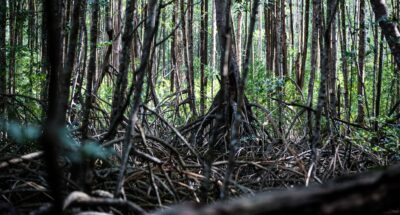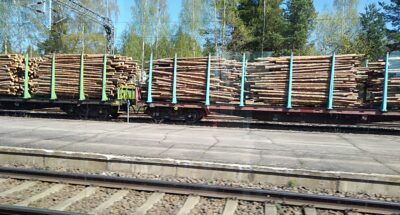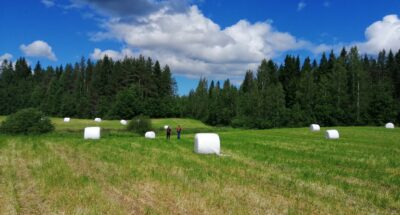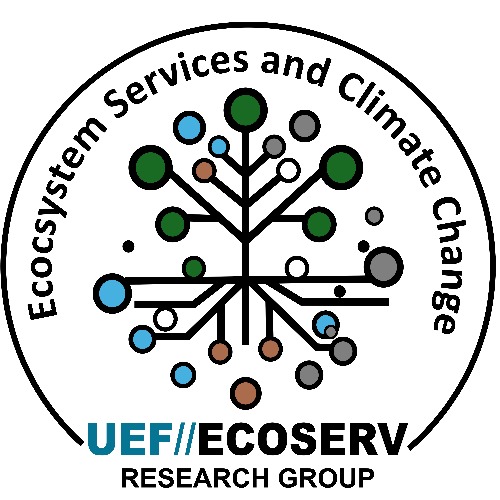
Biomass Production
Introduction
The Research Group of Biomass Production studies sustainable approaches to produce biomass for the growing bioeconomy. Intensive forestry and plantations have the potential to deliver large amounts of biomass as well as additional ecosystem services related to soil, water and biodiversity. At the same time, there are rising problems derived from the intensive exploitation of biomass resources. Risks, whether biotic, abiotic (fire, wind, erosion), or social (forest conflicts) affect the production of these biomass resources; governance and valorization of wood can be integrated in risk management strategies to address them.
Research and Education Lines
Evaluation of biomass production systems, focusing on different plantation systems and cultivations dedicated to the sustainable production of biomass for traditional and emerging bioeconomy uses.
Forest biomass production, focusing on all aspects related to production, including intensive silviculture, efficient operations, optimised logistics and final transformation into higher added value products.
Integrating risk in biomass production, focusing on the integration into forest and plantation management of different disturbances and risks that affect prodution
Governance of natural resources and bioenergy, focusing on the social acceptance of biomass production systems and the sustainable intensification of forest management for the production of biomass.
Introductory courses
LM00CO20 Academic Skills in Forest Sciences (1.5 ECTS)
Upon successful completion of this course, you will be able to explain the principles of the scientific method (i.e. systematic observation, measurement, and experiment, and the formulation, testing, and modification of hypotheses), as well as conduct assignments following the principles of good scientific practice, identify and analyse the main elements of a scientific article and a MSc thesis in forest sciences, as well as write an academic abstract and identify the main elements of an oral academic presentation, as well as design and conduct a presentation in front of a live audience. [link to the course]
LM00CO21 Research Methods in Forest Sciences (3.5 ECTS)
Upon a successful completion of this course, the students are expected to be able to understand the principles of research methodology in forestry, taking into account the research issue and objective formulation as well as choosing an appropriate research approach, experimental set-up, and sampling technique. The students will be able to understand basic biometric and ecosystem modeling concepts, and to apply basic commands of R statistics to model and analyse the collected data For tools, the students will get familiar with R and ArcMap (GIS). [link to the course]
Advanced courses
LM00CO14 Production and energy use of lignocellulosic biomass (6 ECTS)
Essentials: Basic concepts of lignocellulosic biomass supply and production from managed forests, plantations and sources of different industrial by-products. Research and analysis tools for evaluation and estimation of existing biomass resources and potentials. Basics for analysis of harvesting and transportation logistics of energy wood. Complementary knowledge: Heat production technologies; introduction to bio-energy conversion technologies, with focus on thermal combustion and gasification. [link to the course]
LM00CO15 Bioenergy markets and policy (6 ECTS)
Essentials: Overview of the markets for biomass for energy production and biomass based value chains globally and within the European Union (EU), including the supply, quantity, demand, and consumption as well as consumer market aspects. Fundamentals of the policies that have impacts on the supply and consumption of wood energy biomass. Complementary knowledge: Bioenergy governance at local and global level. International bioenergy business, role of bioenergy for the development of rural areas and entrepreneurship. [link to the course]
News
-
 Panama’s Mangroves Lock Massive Soil Carbon
Panama’s Mangroves Lock Massive Soil CarbonPanama’s Mangroves Lock Massive Soil Carbon
New dataset maps soil carbon in mangroves and wetlands across Panama, boosting climate accounting and nature-based solutions. -
 Synchromodality: Boosting Forest Biomass Supply
Synchromodality: Boosting Forest Biomass SupplySynchromodality: Boosting Forest Biomass Supply
New framework applies synchromodal planning to biomass chains, improving flexibility, coordination and real-time decisions. -
 Biomass Crops Can Boost Europe’s Land-Use Diversity
Biomass Crops Can Boost Europe’s Land-Use DiversityBiomass Crops Can Boost Europe’s Land-Use Diversity
Open-access study maps European biomass systems and shows their potential to broaden land-use diversity.
Cooperation
-
Crop Production Ecology
-
Precision Forestry
-
Faculty of Forest Management
-
Landscape and Carbon Dynamics Network
-
 Wood Materials Science
Wood Materials Science -
 UEF//ECOSERV – Ecosystem Services and Climate Change Research Group 01.04.2025 -
UEF//ECOSERV – Ecosystem Services and Climate Change Research Group 01.04.2025 -
-
This is a synthesis of the 2025 publications led by or involving the Biomass Production research group. The findings are organised along the supply chain—from feedstock spatial planning and logistics, to conversion technologies and climate services—highlighting cross-cutting implications for policy and practice.
Synchromodality for resilient biomass logistics
Forest biomass supply chains experience high spatial and temporal variability, multiple handovers, and material quality degradation risks during storage. Adapting synchromodal planning—a holistic, ICT-enabled approach that synchronises transport, inventory, and processing decisions—can enhance flexibility, coordination, and system-wide efficiency. See (Prinz, Mola‑Yudego, & Erber, 2025) for a conceptual framework tailored to forest biomass logistics, including priorities for digital infrastructure and real‑time data.
Climate threats and stakeholder‑driven adaptation
Across five European regions—Finland, Lithuania, Romania, Serbia, and Greece—stakeholders identified heterogeneous threat profiles and emphasised active management, engagement, and targeted policy reforms to bolster forest resilience. Perceived resilience prospects varied regionally, reflecting differences in governance capacity and disturbance regimes. See (Khanam et al., 2025).
Bioenergy options for remote communities
Techno‑economic assessments indicate that small‑scale biomass gasification CHP can be feasible in off‑grid Canadian communities, contingent on reliable feedstock, high heat utilisation, adequate system sizing and utilisation rates, and supportive policy settings that correct diesel subsidies and value avoided emissions. (Schilling, et al., 2025) report electricity costs spanning roughly 0.25–1.20 CAD/kWh depending on local conditions. A detailed sustainability evaluation of a biomass CHP in a remote Indigenous community shows strong employment and income gains and substantial GHG avoidance, (Schilling, et al., 2025), while also revealing operational and policy misalignments that must be addressed for long‑term viability.
Hydrothermal liquefaction of coffee side‑streams
Hydrothermal liquefaction (HTL) of coffee silverskin and spent grounds yields high‑energy hydrochars (>33 MJ/kg), with oil fractions rich in alkaloids, fatty acids, and phenolics that offer potential in cosmetics and pharmaceuticals. These results demonstrate both energy and biochemical valorisation pathways for food‑industry side‑streams within a circular bioeconomy. See (Papamatthaiakis et al., 2025).
Blue carbon: mangrove biomass and carbon datasets
A new, open dataset of plot‑level inventories and landscape‑scale maps for Panama’s mangrove Important Bird Areas supports improved estimation, monitoring, and validation of biomass and carbon stocks, directly informing national climate strategies and NDCs. See (Hoyos‑Santillán, et al., 2025).
Biomass systems and land‑use diversity
A harmonised, Europe‑wide spatial analysis of over 426,000 fields and stands across 17 countries shows that biomass production systems can either enhance or erode local land‑use diversity depending on siting and landscape context. Strategic placement can diversify homogeneous landscapes, support connectivity, and stack ecosystem services, whereas poorly integrated monocultures risk homogenisation and reduced resilience. See (Pineda‑Zapata & Mola‑Yudego, 2025).
Land uses and dengue hotspots
In Medellín (Colombia), dengue cases concentrated in recurrent hotspots—often in low‑to‑medium socioeconomic strata and human‑made land covers—with spatial patterns differing across epidemic and non‑epidemic years. Findings motivate proactive, hotspot‑targeted prevention strategies and surveillance enhancements that account for land‑use and socioeconomic context. See (Pérez‑Pérez et al., 2025).
Cross‑cutting implications
Collectively, these studies reinforce three priorities for a sustainable bioeconomy: (i) digital, data‑driven coordination across biomass supply chains, (ii) context‑specific deployment of conversion technologies coupled with enabling policy frameworks, and (iii) spatial planning that aligns biomass systems with ecosystem services and community outcomes. Advances in open datasets and participatory, stakeholder‑informed approaches provide the evidence base to support this integration across scales.
References
Hoyos‑Santillán, J., Miranda, A., Chavarría, J., Hormazabal, C., Mola‑Yudego, B., & González‑Mahecha, E. (2025). Plot and landscape‑level estimates of tree biomass and carbon stocks in Panama’s mangrove Important Bird Areas. Scientific Data, 12, 1016. https://doi.org/10.1038/s41597-025-05354-5
Khanam, T., Peris‑Llopis, M., Selkimäki, M., Brazaitis, G., Mola‑Yudego, B., Hartmann, H., … Berninger, F. (2025). Navigating climate threats in forestry across five European regions: Stakeholder’s adaptive management and policy strategies to resilience. Journal of Environmental Management, 388, 125903. https://doi.org/10.1016/j.jenvman.2025.125903
Papamatthaiakis, N., Barbero‑López, A., Eronen, E., Jänis, J., Mola‑Yudego, B., & Haapala, A. (2025). Hydrothermal liquefaction of coffee silverskin and spent coffee grounds: Bioenergy and biochemical potential. BioEnergy Research, 18, 65. https://doi.org/10.1007/s12155-025-10867-3
Pineda‑Zapata, S., & Mola‑Yudego, B. (2025). European biomass production systems: Characterization and potential contribution to land use diversity. GCB Bioenergy, 17, e70057. https://doi.org/10.1111/gcbb.70057
Pérez‑Pérez, J., Pulgarín Díaz, J. A., Rúa‑Uribe, G., Mola‑Yudego, B., Delmelle, E., Rojo, R., & Berninger, F. (2025). Effect of socioeconomic strata and land cover on dengue hotspots in Medellín, Colombia. The American Journal of Tropical Medicine and Hygiene, 112(6), 1289–1299. https://doi.org/10.4269/ajtmh.24-0665
Prinz, R., Mola‑Yudego, B., & Erber, G. (2025). Transferring synchromodal principles to forest biomass supply: A holistic approach to supply chain design. Research in Transportation Business & Management, 61, 101389. https://doi.org/10.1016/j.rtbm.2025.101389
Schilling, C., Mola‑Yudego, B., Marinescu, M., Gaston, C., & Röser, D. (2025). Biomass gasification as a viable alternative for small‑scaled combined heat and power technologies in remote communities in Canada. BioEnergy Research, 18, 19. https://doi.org/10.1007/s12155-024-10812-w
Schilling, C., Xie, S. H., Mola‑Yudego, B., Zerriffi, H., Gaston, C., & Roeser, D. (2025). Small‑scale biomass combined heat and power systems in remote Indigenous communities: Economic, social and environmental sustainability challenges amid policy misalignment. Cleaner Energy Systems, 12, 100201. https://doi.org/10.1016/j.cles.2025.100201
Keywords
Professors
Post-doctoral Researchers
-

Tahamina Tahamina Khanam
Postdoctoral ResearcherDepartment of Environmental and Biological Sciences, Faculty of Science, Forestry and Technology -
Mari Selkimäki
Postdoctoral ResearcherSchool of Forest Sciences, Faculty of Science, Forestry and Technology -
Marina Peris Llopis
Postdoctoral ResearcherSchool of Forest Sciences, Faculty of Science, Forestry and Technology
Doctoral Researchers
-
Daniela Nousiainen
Project CoordinatorSchool of Forest Sciences, Faculty of Science, Forestry and Technology -
Jessenia Polack Huaman
Doctoral ResearcherSchool of Forest Sciences, Faculty of Science, Forestry and Technology -
Qianqian Tian
Doctoral ResearcherSchool of Forest Sciences, Faculty of Science, Forestry and Technology -
Xin Zhou
Doctoral ResearcherSchool of Forest Sciences, Faculty of Science, Forestry and Technology -
Carlos Martin Cortes
Doctoral ResearcherSchool of Forest Sciences, Faculty of Science, Forestry and Technology
Other group members
-
Ioannis Dimitriou (Associate Professor) Crop Production Ecology, Swedish University of Agricultural Sciences (Sweden)
-
José Ramón González-Olabarria (Senior Researcher) Precision Forestry, Forest Science and Technology Centre of Catalonia (Spain)
-
Carolina Martín Assistant (Cartography and mapping) Assistentti (Kartografia ja kartoitus)
-
Olalla Díaz-Yáñez (Researcher) Department of Environmental Systems Science, ETH Zurich (Switzerland)
-
-

